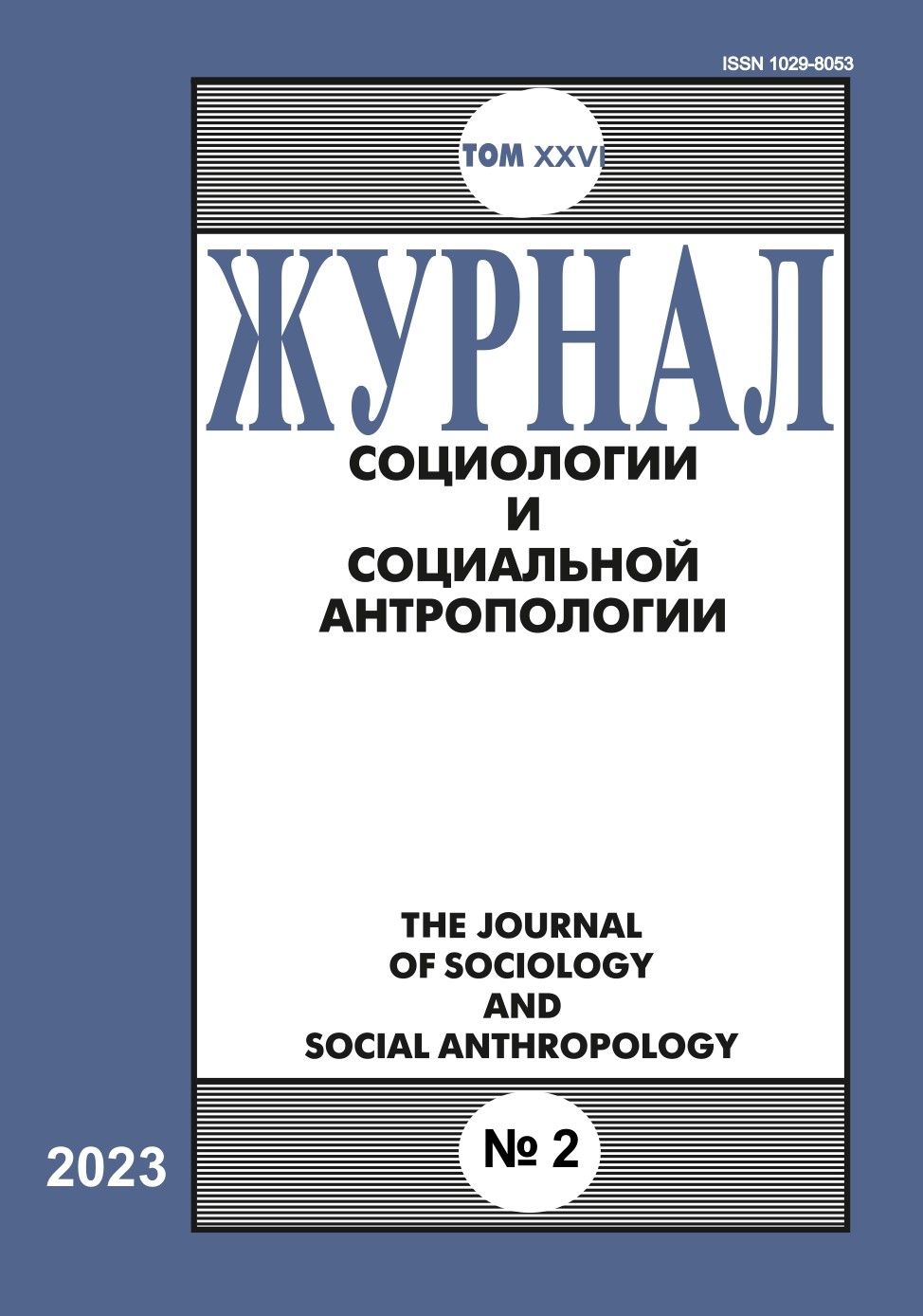Построение объяснительных теорий в исторической социологии: реконструкция «историй успеха»
Аннотация
Литература
Гемпель К. (2000) Функция общих законов в истории. Время мира. Вып. 1. Историческая макросоциология в XX веке. Новосибирск: Изд-во НГУ: 6–31.
Карнейро Р.Л. (1970/2006) Теория происхождения государства. Гринин Л.Е. и др. (ред.) Раннее государство, его альтернативы и аналоги. Волгоград: Учитель: 55–70.
Клейн Л.С. (2001) Принципы археологии. СПб.: Бельведер.
Коллингвуд Р. (1980) Идея истории. Автобиография. М.: Наука.
Ладенко И.С. (1973) Интеллектуальные системы и логика. Новосибирск: Наука.
Лакатос И. (1995) Фальсификация и методология научно-исследовательских программ. М.: Медиум.
Никаноров С.П. (2009) Концептуализация предметных областей. М.: Концепт.
Розов Н.С. (2002) Философия и теория истории. Книга 1. Пролегомены. М.: Логос.
Розов Н.С. (2009) Историческая макросоциология: методология и методы. Новосибирск: Изд-во НГУ.
Розов Н.С. (2022) Происхождение языка и сознания. Как социальные порядки и коммуникативные заботы порождали когнитивные и речевые способности. Новосибирск: Манускрипт.
Campanaro D. M. (2021) Inference to the Best Explanation (IBE) and Archaeology: Old Tool, New Model. European Journal of Archaeology, 24(3): 412–432.
Carneiro R. (1988) The Circumscription Theory: Challenge and Response. American Behavioral Scientist, 31: 497–511.
Carneiro R.L. (1998) What Happened at the Flashpoint? Conjectures on Chiefdom Formation at the Very Moment of Conception.” In: Redmond E.M. (ed.) Chiefdoms and Chieftaincy in the Americas. Gainesville, FL: University Press of Florida: 18–42.
Carneiro R.L. (2012) The Circumscription Theory: A Clarification, Amplification, and Reformulation. Social Evolution and History, 11: 5–31.
Castillo O., Mellin P. (2006) Hybrid Intelligent Systems. Heidelberg: Springer-Verlag.
Chapman R., Wylie A. (2016) Evidential reasoning in archaeology. L.: Bloomsbury Academic.
Clark J. T. (2010) The Fallacy of Reconstruction. In: Forte M. (ed.) Cyber Archaeology. Oxford: British Archaeological Records (BAR), International Series, 2177: 63–73.
Collins R. (1986) Weberian sociological theory. N.Y.: Cambridge University Press.
Collins R. (1995) Prediction in Macrosociology: The Case of the Soviet Collapse. American Journal of Sociology, 5: 1552–1593.
Fogelin L. (2008) Inference to the Best Explanation: A Common and Effective Form of Archaeological Reasoning. American Antiquity, 72(4): 603–625.
Marcus J., Flannery K.V. (1996) Zapotec Civilization; How Urban Society Evolved in Mexico's Oaxaca Valley. L.: Thames & Hudson.
Ragin C. (1987) The Comparative Method: Moving Beyond Qualitative and Quantitative Strategies. Berkeley: University of California Press.
Renfrew C. (1976) Before Civilization. Harmondsworth, UK: Penguin.
Rihou B., Ragin C. (eds) (2008) Configurational Comparative Methods. L.: Sage.
Stinchcombe A. (1987) Constructing Social Theories. Chicago; L.: University of Chicago Press.
Toulmin St. (1972) Human Understanding. Oxford: Clarendon Press; Oxford University Press. .
Turchin P. et al. (2018) An Introduction to Seshat: Global History Databank. Journal of Cognitive Historiography, 5(1–2): 1–20.
Zinkina et al. (2016) Circumscription Theory of the Origins of the State: A Cross-Cultural Re-Analysis. Cliodynamics, 7(2): 187–203.
Поступила: 27.10.2022
Опубликована: 02.07.2023






